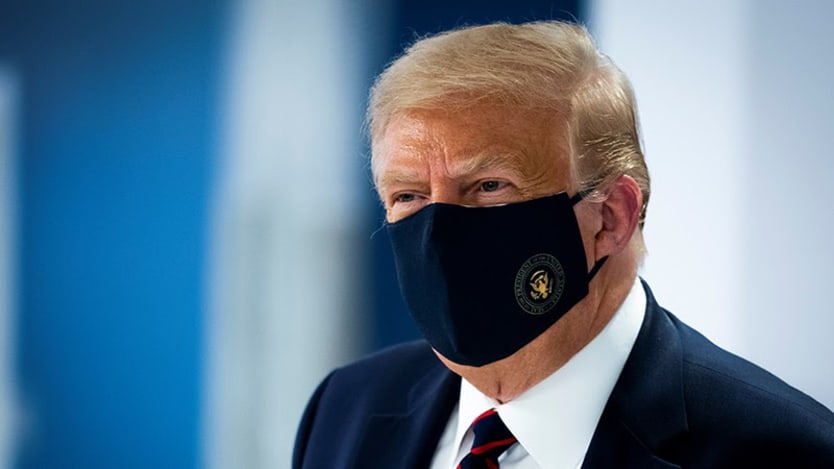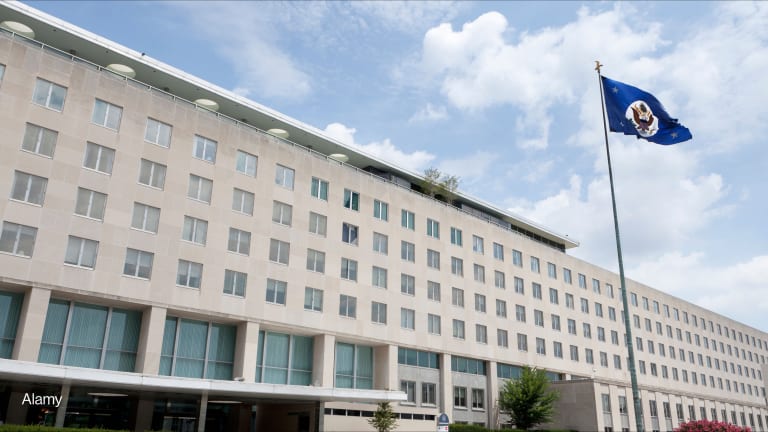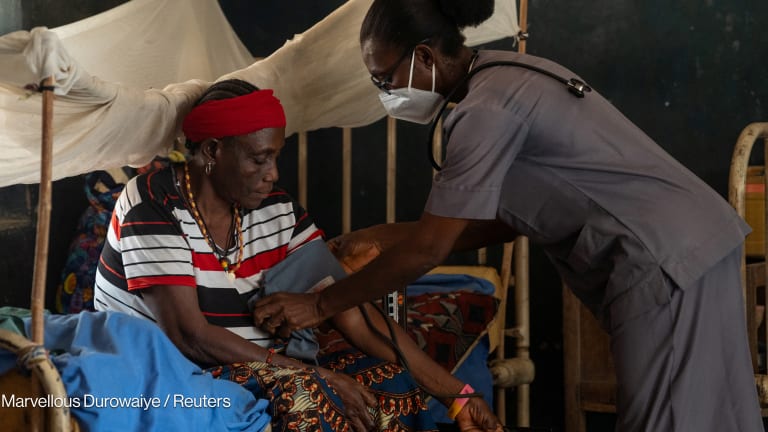What's behind the backlash against a White House pandemic proposal?

BURLINGTON, Vt. — U.S. government efforts to create a new initiative for global pandemic preparedness and response have run into a stiff wall of criticism.
While objections to the State Department-led plan reflect substantive concerns about its direction, they also show how difficult it is for an administration that has spent nearly four years seeking to undermine U.S. foreign aid and global health engagement to convince development advocates it has their best interests at heart.
Details about the “President’s Response to Outbreaks,” a two-pronged, bilateral and multilateral pandemic initiative overseen by the Department of State, first came to light in late May, when Devex obtained documents describing the proposal. U.S. aid experts immediately raised concerns about the idea, and have continued to warn that it could create new bureaucratic delays, further marginalize the World Health Organization, and even “dismember” the U.S. Agency for International Development.
The result is that some of the strongest advocates for U.S. leadership in global health now strongly oppose the only known effort by President Donald Trump’s administration to update America’s engagement in global health security in response to COVID-19.
Devex spoke to a senior State Department official about the current status of internal discussions and how officials involved in the effort arrived at the conclusions they did.
“We’re still in internal U.S. government deliberations, and that includes interagency consultations. This is not a settled issue in terms of what we’re trying to accomplish and how we’re trying to accomplish that,” the senior State Department official said on the condition of anonymity.
The official added that leaks about the internal discussions have, “not been a helpful way for us to finish the conversation, because they’re often sidetracked by us having to deal with things that are outside of the deliberative process.”
One of the most controversial elements of the proposal is that global health security efforts would be led by a new coordinator at the Department of State, which many have described as a threat to USAID’s authority over global health programs, as well as an unnecessary layer of additional bureaucracy.
“The overwhelming rhetoric that emanates from this administration is skepticism about the value of foreign assistance.”
— Conor Savoy, executive director, the Modernizing Foreign Assistance NetworkThe senior official described the idea that coordination is not valuable as, “inconsistent with what we do in the U.S. government.”
“We think having conversations about more coordination are always in the USG’s interest,” the official added, noting that initiatives like the President’s Emergency Plan for AIDS Relief and the President’s Malaria Initiative, “show where coordination has been to our benefit.”
On the multilateral front, the official described the Global Fund to Fight AIDS, Tuberculosis, and Malaria and Gavi, the Vaccine Alliance as examples of “international organizations that don’t undermine WHO.”
When the U.S. government engaged in discussions about creating those institutions, the official said, “we didn’t have to have these conversations about — is this a way of working around the WHO — because the WHO doesn’t do what the Global Fund does.”
The official noted that deliberations over the proposal are currently happening among executive branch agencies including the State Department, USAID, Health and Human Services, and the Centers for Disease Control and Prevention, but once they arrive at a “cohesive idea,” that will be taken to Congress for further discussion and consultation.
“We certainly want [to] and will work with Congress at the first opportunity we can,” the official said.
Critics in the development community have substantive disagreements with those involved in the process of developing the proposal. But those disagreements do not fully account for the level of distrust and frustration that has characterized the relationship between external observers and what they view as a process surprisingly lacking in transparency.
“The overwhelming rhetoric that emanates from this administration is skepticism about the value of foreign assistance,” said Conor Savoy, executive director of the Modernizing Foreign Assistance Network.
He cited consecutive White House budget proposals that sought to slash foreign aid, multiple efforts to rescind lawfully appropriated funding, and early discussions led by former Secretary of State Rex Tillerson that suggested USAID might be merged with the State Department.
“Do I think that the individuals who are involved in working on this particular proposal are predisposed to that? No, I don’t. But I think that there are other forces within this administration that are, and they may be … the deciding voice ultimately on things like this,” Savoy added.
Some global health experts have suggested that instead of placing this authority with the State Department, it ought to be coordinated at the National Security Council. But the Trump administration’s decision to dissolve the NSC directorate that was responsible for global health security makes it very unlikely this White House would agree to that, since doing so could be seen as admitting they made a mistake, Savoy said.
He added that just because the White House finds itself in that political bind does not mean global health advocates should go along with a solution they disagree with.
The proposal has also arrived at a moment when USAID’s standing among federal agencies has taken a sharp downward turn, heightening fears that the agency could be susceptible to what Savoy described as a potential “maximalist power grab” by the State Department, a perennial source of anxiety among USAID advocates.
The transition from former administrator Mark Green to acting administrator John Barsa has seen USAID’s leadership shift “from someone who was widely respected by the community to someone who was basically an unknown to the community,” Savoy said.
At the same time, USAID has seen a recent influx of highly-controversial political appointees, and associated high-profile scandals that have accompanied some of them.
That has all, “contributed to an overall environment where folks felt like they were being purposefully excluded from what is a really important discussion,” Savoy said, describing it as “a missed opportunity to … engage the community and put to rest some of these bigger concerns.”
Search for articles
Most Read
- 1
- 2
- 3
- 4
- 5








